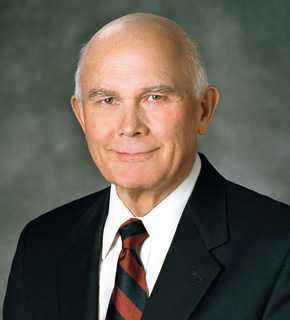Riches
SEARCH BY TITLE
 The Parable of the Sower
The Parable of the Sower
I will speak first of the deceitfulness of riches. Wherever we are in our spiritual journey—whatever our state of conversion—we are all tempted by this. When attitudes or priorities are fixed on the acquisition, use, or possession of property, we call that materialism. So much has been said and written about materialism that little needs to be added here. Those who believe in what has been called the theology of prosperity are suffering from the deceitfulness of riches. The possession of wealth or significant income is not a mark of heavenly favor, and their absence is not evidence of heavenly disfavor. When Jesus told a faithful follower that he could inherit eternal life if he would only give all that he had to the poor, He was not identifying an evil in the possession of riches but an evil in that follower’s attitude toward them. As we are all aware, Jesus praised the good Samaritan, who used the same coinage to serve his fellowman that Judas used to betray his Savior. The root of all evil is not money but the love of money. The Book of Mormon tells of a time when the Church of God “began to fail in its progress” because “the people of the church began to … set their hearts upon riches and upon the vain things of the world”. Whoever has an abundance of material things is in jeopardy of being spiritually “sedated” by riches and other things of the world. That is a suitable introduction to the next of the Savior’s teachings. The most subtle thorns to choke out the effect of the gospel word in our lives are the worldly forces that Jesus called the “cares and riches and pleasures of this life”. These are too numerous to recite. Some examples will suffice.
